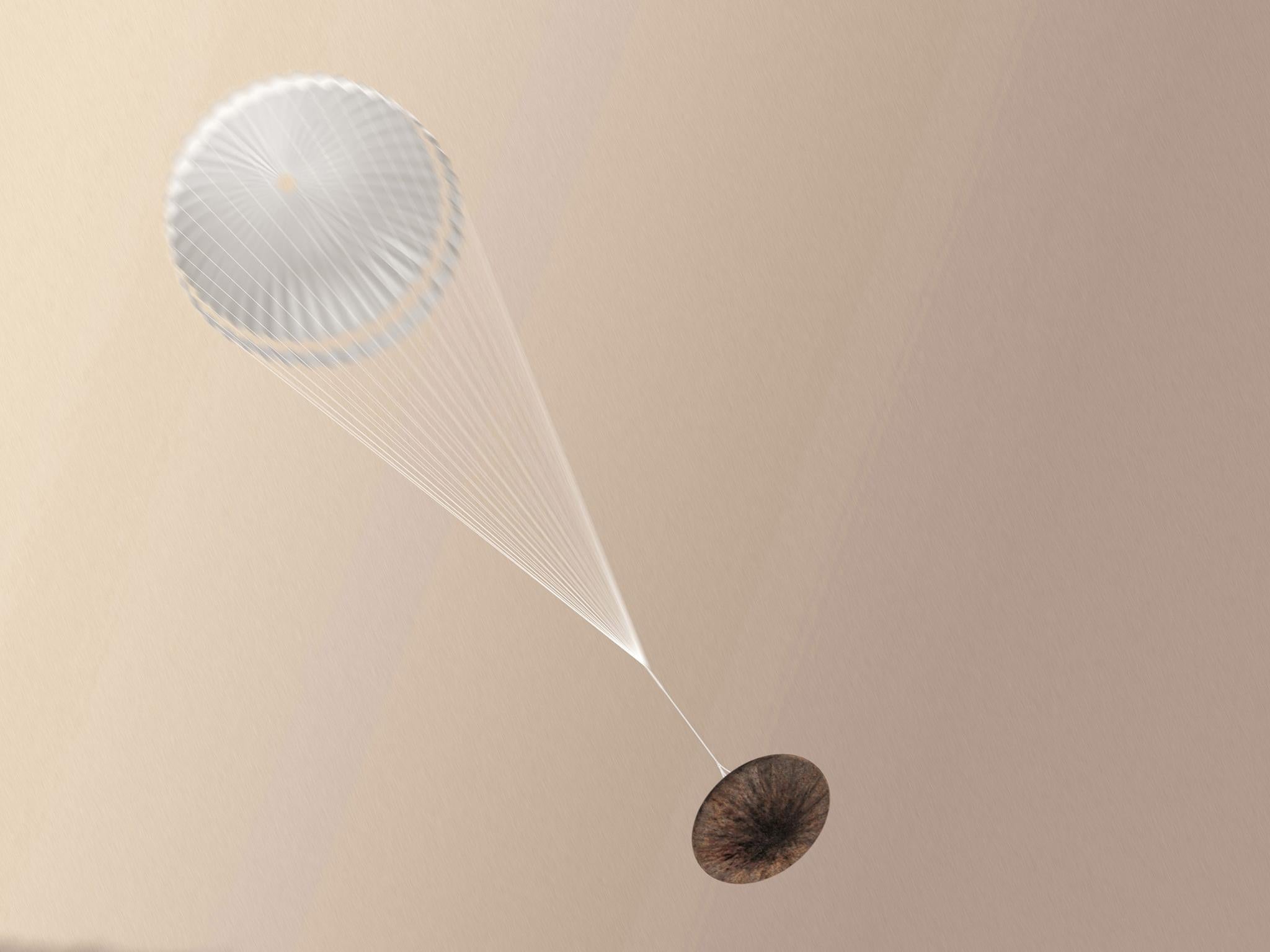European Space Agency Mars lander failed because it didn't know how close it was to the red planet
The lander thought it was on the surface – but actually had more than two miles left to go

Europe's Mars lander crashed because it didn't know where it was, an investigation had found.
Last month, the European Space Agency's Schiaparelli spacecraft tried to land itself on the red planet, in large part as a way of testing its landing technology. But it failed, with the lander crashing into the planet's surface and breaking down.
The problem happened because a sensor failure meant that it cast off its parachute and fire its breaks, while it still had more than two miles left to go, the investigation has found. The sensor made the craft think it had already arrived on the planet, according to the report.
The error stemmed from a momentary glitch in a device that measured how fast the spacecraft was spinning, the European Space Agency (ESA) said.
"When merged into the navigation system, the erroneous information generated an estimated altitude that was negative - that is, below ground level. This in turn successively triggered a premature release of the parachute ... and a brief firing of the braking thrusters," ESA said of its attempt last month to land the Schiaparelli spacecraft on Mars.
The spacecraft activated its ground systems, even though it was still about 2.3 miles off the surface, the ESA said.
The crash of Schiaparelli onto the surface of Mars abruptly ended its mission to demonstrate a landing system and to measure wind speed and direction from the planet's surface.
The prime contractor for the spacecraft is Italy's Thales Alenia Space, a joint venture of Thales SA and Leonardo Finmeccanica SpA. A full report on the accident is expected in early 2017, ESA said.
ESA, which is based in Paris and has 22 member states, said the flight still provided information that will be key to landing a rover vehicle on Mars in 2021 that is designed to look for life past and present.
"We will have learned much from Schiaparelli," David Parker, who oversees space exploration programs for ESA, said in a statement.
Additional reporting by Reuters
Join our commenting forum
Join thought-provoking conversations, follow other Independent readers and see their replies
Comments